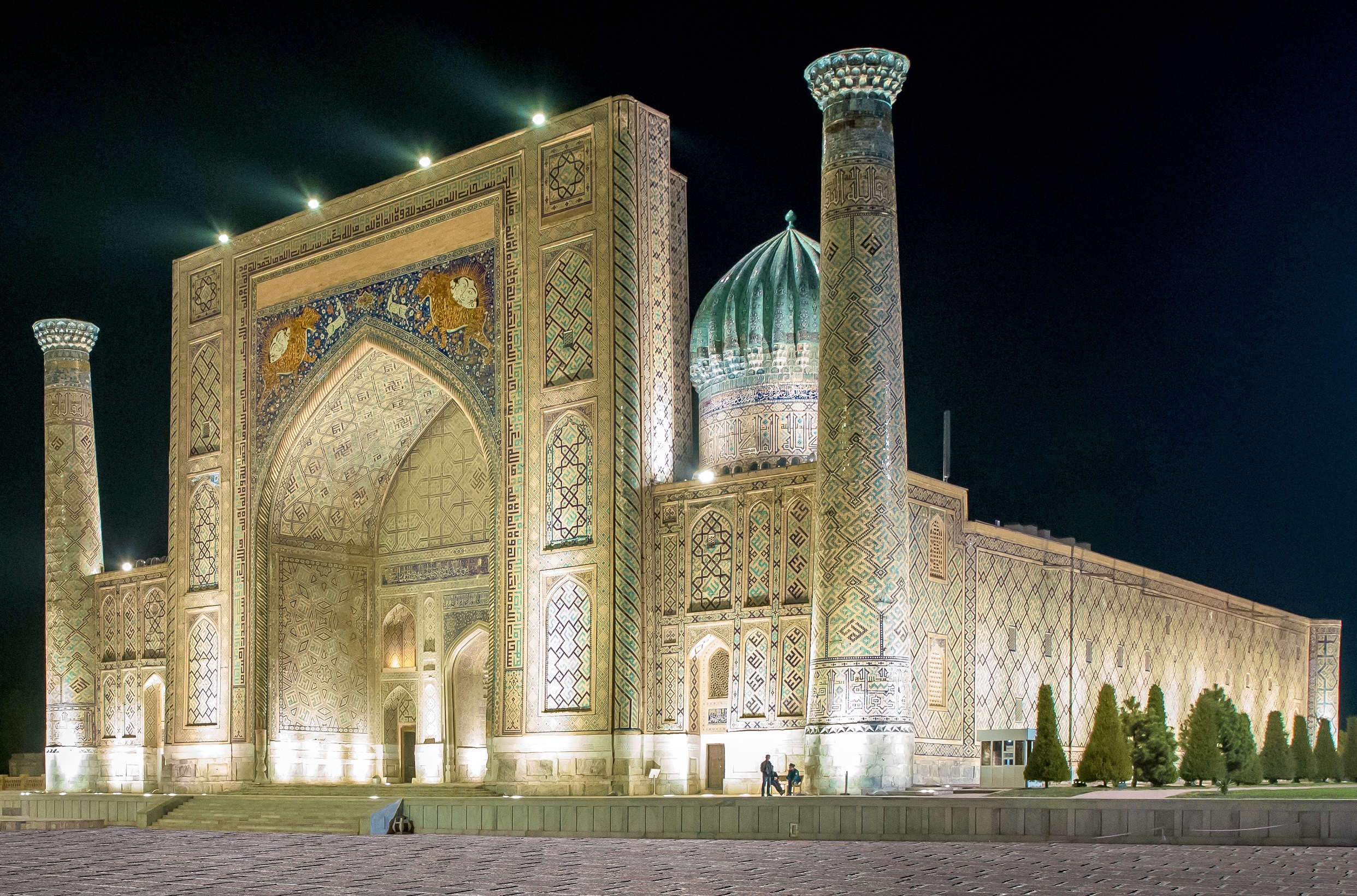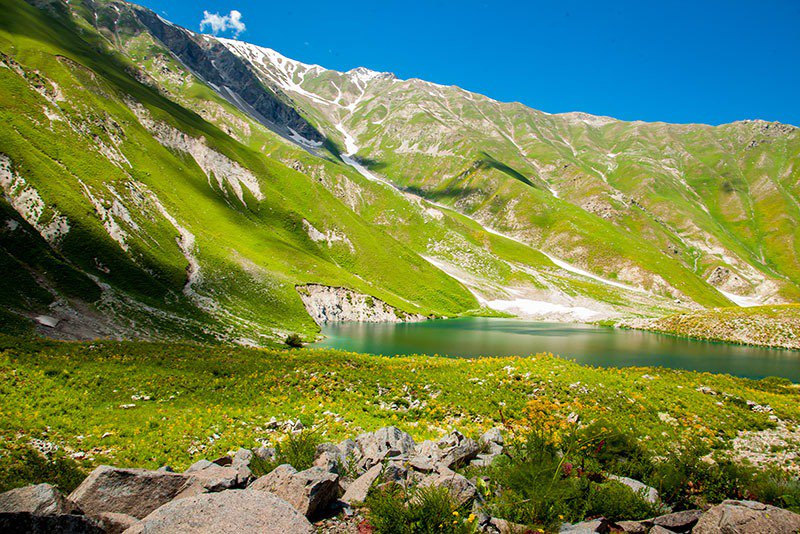Why you must visit Samarkhand
Published: 26.03.2023
Author: David Malan
★★★★☆
The name comes from Sogdian samar "stone, rock" and kand "fort, town."[11] In this respect, Samarkand shares the same meaning as the name of the Uzbek capital Tashkent, with tash- being the Turkic term for "stone" and -kent the Turkic analogue of kand...
Read more...Why you must visit Samarkhand
Published: 25.03.2023
Author: David Malan
★★☆☆☆
The name comes from Sogdian samar "stone, rock" and kand "fort, town."[11] In this respect, Samarkand shares the same meaning as the name of the Uzbek capital Tashkent, with tash- being the Turkic term for "stone" and -kent the Turkic analogue of kand...
Read more...Why you must visit Samarkhand
Published: 20.03.2023
Author: David Malan
★★★☆☆
The name comes from Sogdian samar "stone, rock" and kand "fort, town."[11] In this respect, Samarkand shares the same meaning as the name of the Uzbek capital Tashkent, with tash- being the Turkic term for "stone" and -kent the Turkic analogue of kand...
Read more...Why you must visit Samarkhand
Published: 26.03.2023
Author: David Malan
★★★★☆
The name comes from Sogdian samar "stone, rock" and kand "fort, town."[11] In this respect, Samarkand shares the same meaning as the name of the Uzbek capital Tashkent, with tash- being the Turkic term for "stone" and -kent the Turkic analogue of kand...
Read more...Why you must visit Samarkhand
Published: 26.03.2023
Author: David Malan
★★★★☆
The name comes from Sogdian samar "stone, rock" and kand "fort, town."[11] In this respect, Samarkand shares the same meaning as the name of the Uzbek capital Tashkent, with tash- being the Turkic term for "stone" and -kent the Turkic analogue of kand...
Read more...Why you must visit Samarkhand
Published: 26.03.2023
Author: David Malan
★★★★☆
The name comes from Sogdian samar "stone, rock" and kand "fort, town."[11] In this respect, Samarkand shares the same meaning as the name of the Uzbek capital Tashkent, with tash- being the Turkic term for "stone" and -kent the Turkic analogue of kand...
Read more...Why you must visit Samarkhand
Published: 26.03.2023
Author: David Malan
★★★★☆
The name comes from Sogdian samar "stone, rock" and kand "fort, town."[11] In this respect, Samarkand shares the same meaning as the name of the Uzbek capital Tashkent, with tash- being the Turkic term for "stone" and -kent the Turkic analogue of kand...
Read more...Why you must visit Samarkhand
Published: 26.03.2023
Author: David Malan
★★★★☆
The name comes from Sogdian samar "stone, rock" and kand "fort, town."[11] In this respect, Samarkand shares the same meaning as the name of the Uzbek capital Tashkent, with tash- being the Turkic term for "stone" and -kent the Turkic analogue of kand...
Read more...Why you must visit Samarkhand
Published: 26.03.2023
Author: David Malan
★★★★☆
The name comes from Sogdian samar "stone, rock" and kand "fort, town."[11] In this respect, Samarkand shares the same meaning as the name of the Uzbek capital Tashkent, with tash- being the Turkic term for "stone" and -kent the Turkic analogue of kand...
Read more...Why you must visit Samarkhand
Published: 26.03.2023
Author: David Malan
★★★★☆
The name comes from Sogdian samar "stone, rock" and kand "fort, town."[11] In this respect, Samarkand shares the same meaning as the name of the Uzbek capital Tashkent, with tash- being the Turkic term for "stone" and -kent the Turkic analogue of kand...
Read more...Why you must visit Samarkhand
Published: 26.03.2023
Author: David Malan
★★★★☆
The name comes from Sogdian samar "stone, rock" and kand "fort, town."[11] In this respect, Samarkand shares the same meaning as the name of the Uzbek capital Tashkent, with tash- being the Turkic term for "stone" and -kent the Turkic analogue of kand...
Read more...Why you must visit Samarkhand
Published: 26.03.2023
Author: David Malan
★★★★☆
The name comes from Sogdian samar "stone, rock" and kand "fort, town."[11] In this respect, Samarkand shares the same meaning as the name of the Uzbek capital Tashkent, with tash- being the Turkic term for "stone" and -kent the Turkic analogue of kand...
Read more...



